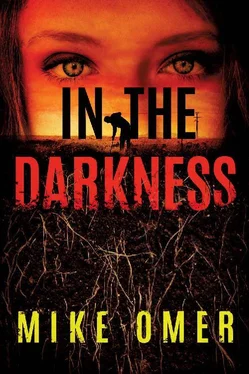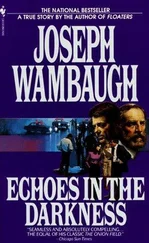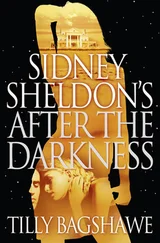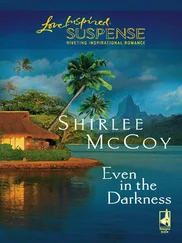“You don’t seem to mind the heat,” she said, glancing at Tatum, trying to distract herself.
“I grew up in Arizona.”
Zoe nodded. “Did you like growing up in . . .” She hesitated, suddenly unsure where exactly he’d grown up in.
“Wickenburg? Yeah, I guess I did. It was a really small town, so everyone knew everyone. I had the same three friends from kindergarten all the way up to high school. And the pace was different than it is in the city. We’d hang around outside for hours playing ball or just chatting until my parents or Marvin would shout at us to go do something useful.”
“You lived close to Marvin?” Zoe asked.
Tatum smiled. “He moved next door to us after my grandma died. My dad and Marvin used to shout at each other through the window. The houses were still a bit apart, so they had to shout really loud. Drove the neighbors insane.” Tatum deepened his voice in imitation. “Hey, Marvin, coming to watch the game? Sure, Tolly, what’s for dinner? Marvin, we already ate dinner an hour ago. What? And you didn’t call?” Tatum snorted. “They’d keep shouting until my mom would bang the window shut.”
“Tolly?” Zoe asked.
“Tolliver. But everyone called my dad Tolly. Check this out. This part of the song’s brilliant.”
Zoe didn’t share his excitement with “this part of the song.” The style kept changing, making it annoying to follow.
“My parents hardly ever shouted. They always worried about what the neighbors think,” she said. “When they’d have an argument, my mom would walk around the house, making sure all the windows were closed, while screaming at my dad.”
“Ha! My parents sometimes shouted at each other because there was nothing good on TV. It was like a family pastime.”
Tatum drummed on the steering wheel, the smile still on his face as he listened to the album. “What did you do as a child?” Tatum asked after a few minutes. “Before you started chasing serial killers, I mean.”
“Read, mostly. Anything I could get my hands on. We had a nice library in Maynard, and I’d go there on my bike a few times every week to borrow books.”
“I had you pegged for a bookworm.”
“I wasn’t like a recluse, hiding in the attic with my books,” Zoe said, annoyed. “I’d hang out with my friends . . . well, one friend.”
“Your BFF?”
“I don’t know what that is.”
Tatum glanced at her, surprised. “Best friends forever. Everyone knows that.”
Zoe shrugged. “Well, obviously not forever—I haven’t talked to her in more than five years. But we were very good friends. We would go to each other’s house all the time on our bike. Now that I think about it, I went everywhere with my bike. I don’t think I’ve ridden a bike since I left Maynard.”
“I used to ride my bike everywhere too,” Tatum said. “Whenever I think about my childhood, I remember pedaling hard, trying to get the bike as fast as I could. I’d ride to school and back every day, timing myself, always trying to break my own records. I’d ride with my friends a lot too, racing down the street, ramming into each other. Sometimes we’d go to Turtleback Mountain . . . I don’t even think it’s a proper mountain, but it seemed huge. We’d ride to the top, then drive as fast as we could to the bottom.”
“Sounds like it’s a miracle you survived childhood.”
Tatum laughed. “Once I moved in with Marvin, supervision became a bit lax.”
The image of teenage Tatum took shape in Zoe’s mind. She found herself fascinated with it. She wanted to find out how little Tatum had grown up into the man she was slowly getting to know.
“What happened to your parents?” she asked. They’d never talked about it before. She just knew that Marvin had raised him.
“They died in a car accident when I was twelve. Drunk driver rammed into them.”
“I’m sorry.”
“Thanks. The driver who killed them died as well, which I think was lucky. Because otherwise, Marvin would have hunted him down and killed him. Instead, he took me in and did a pretty decent job of raising me.”
“I’d say he did more than a decent job.”
“Well, you weren’t around for the famous eleventh-grade curfew time war.” Tatum flashed her a grin. He slowed the car down as they entered the parking lot of the San Angelo Police Department, a large flat brown structure.
“So?” He switched off the engine. “What do you think of the album?”
“There’s no chorus, no rhythm, and the singer’s voice is a bit annoying when he yells. But I liked the instrumental section in the first song. If the entire album was like that, it would have been great to listen to.”
Tatum’s mouth twitched. “You have to listen to it several times to really—”
“Tatum, I’m never listening to that album again. And it’s my turn to choose next time.” She got out of the car and closed the door behind her.
The Criminal Investigation Division of the San Angelo Police Department was on the first floor, on the far end of the long hallway that emerged from the lobby. The open space was split into an assortment of cubicles, their walls beige, just low enough that Tatum could peek over the top into each of the small enclosed spaces. Lieutenant Peter Jensen, who escorted them inside, paused for a moment and looked around him, as if noticing the cubicles for the first time.
“This is where our detectives work.” He gestured grandly around his kingdom. He was a short man, not much taller than Zoe. “Over here we have the investigation whiteboard,” he continued, showing them a large whiteboard. “We fill it with our most pressing cases.”
The whiteboard was empty except for one corner, where someone had played tic-tac-toe, and the top, where it seemed someone accidentally had begun writing with a permanent marker and then realized his mistake and stopped. The letters Gib were the result, etched for eternity. Jensen glared at the whiteboard in frustration, clearly upset there was no pressing case to demonstrate.
“That’s very interesting.” Tatum hoped to interrupt the tour. “Where do you want to talk about the Medina case?”
“Let’s go to my office. It’s just over there.”
He led them through a small door at the edge of the cubicles to a cramped corner office with a large desk, its surface entirely clean. On the wall opposite the door were several framed letters that thanked the police for their hard work and one photograph of Jensen with an official-looking man Tatum assumed was the police chief.
Jensen sat behind his desk and entwined his fingers. “Please. Sit down.”
Over his years as an FBI agent, Tatum had learned to sense when he was not welcome. Jensen clearly wasn’t happy they were there. He had a certain air of a man preparing a long speech that could be summarized as “Go away.”
“I am really happy the FBI is taking this case so seriously,” Jensen said. “Quite frankly, we informed you about the video because we wanted to update you that we had a situation that could, under certain circumstances, escalate.”
Tatum translated Jensen’s sentence in his mind. Someone called the FBI without asking me first.
“That’s why we’re here,” he said brightly. “To prevent escalation.”
“Of course! And we’re very pleased. Interagency collaboration is something we value very highly in the San Angelo Police Department.”
We handle our shit ourselves. All other law agencies should mind their own damn business.
“However, it might have been premature to send an FBI team over.”
You want to take our case away. That will happen over my cold, dead body.
Читать дальше











